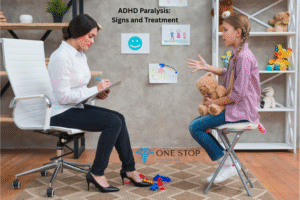Depression is a psychiatric illness that affects millions of people, but not everyone suffers from the same symptoms. This blog article will break down the different types of depression and treatment options available to help those who are struggling with their mental health.
What is Depression?
Depression is a mental illness that can be difficult to understand. It is more than just feeling sad or down for a period of time. Depression affects how you feel, think, and behave. It can lead to physical problems and make it hard to function in your everyday life.
There are different types of depression, and it can range from mild to severe. Symptoms can include feeling hopeless, worthless, or helpless. You may lose interest in activities you once enjoyed. You may have trouble sleeping or eating. You may also have physical symptoms, such as fatigue or headaches.
Depression is caused by a variety of factors. It can be triggered by a life event, such as the death of a loved one or losing your job. It can also be the result of an imbalance in brain chemicals. Some people are more likely to experience depression due to genetics or family history.
Treatment for depression often includes medication and therapy. In some cases, hospitalization may be necessary. With treatment, most people with depression improve and can function in their everyday lives.
The Symptoms of Depression
Depression is more than just feeling sad. It’s a real, serious medical condition that causes feelings of hopelessness, sadness, and despair. It can lead to physical problems, too. People with depression may have trouble sleeping, eating, or concentrating. They may feel like they can’t go on living or that life isn’t worth living.
The symptoms of depression can be different for each person. Some people have only a few symptoms, while others have many. Some people may only feel down for a short time, while others may feel down for months at a time. But some treatments can help people with depression feel better.
The Causes of Depression
Many different factors can contribute to the development of depression. It is often the result of a combination of physical, psychological, and social factors.
Physical causes: Depression can be caused by many physical factors, such as a medical condition, medications, sleep problems, or hormone changes.
Psychological causes: Depression can also be caused by certain psychological factors, such as low self-esteem, negative thinking patterns, and stress.
Social causes: Finally, social factors such as isolation, financial problems, or a major life event can also contribute to depression.
Treatments for Depression
There are several different treatments for depression, which can be broadly divided into two categories: psychological therapies and medication.
Psychological therapies aim to help the person understand and manage their condition, while medication aims to alleviate the symptoms of depression by altering brain chemistry.
The most common psychological therapy for depression is cognitive behavioural therapy (CBT), which teaches people to recognise and change negative thinking patterns.
Other types of psychological therapies include interpersonal therapy, which focuses on relationships; problem-solving therapy, which helps people to find practical solutions to problems; and psychodynamic therapy, which explores the role of past experiences in present difficulties.
Medication for depression is typically antidepressants, which work by increasing levels of certain chemicals in the brain known as neurotransmitters.
There are a variety of different antidepressants available, and the type that is prescribed will depend on the individual’s specific situation.
Electroconvulsive therapy (ECT) is another treatment option for depression, particularly when other treatments have been unsuccessful. ECT involves passing electrical currents through the brain to induce a seizure, which is thought to have a beneficial effect on mood.
How to Help Someone With Depression
If you think someone in your life may be dealing with depression, it can be tough to know what to do. You might feel like you’re walking on eggshells, not wanting to make the situation worse.
The most important thing you can do is to be there for the person. Let them know that you care and are available to talk and listen. It’s also important to encourage them to get professional help. Depression is a serious condition that requires treatment from a mental health professional.
Here are some other things you can do to support someone with depression:
Educate yourself about depression. The more you know about the condition, the better equipped you’ll be to help.
Encourage them to get professional help. This is one of the most important things you can do. Depression is a serious condition that requires treatment from a mental health professional.
Offer practical help and assistance. This could include things like running errands, cooking meals, or providing child care.
Make sure they’re taking care of themselves. This means eating healthy, getting enough sleep and exercise, and avoiding alcohol and drugs.
Contact One Stop Psychiatry
If you’re struggling with depression, don’t suffer in silence. Seek treatment from a mental health professional at One Stop Psychiatry. With our experts’ help, you can overcome and live a full and healthy life.
Call us for free consultation: Ph: (754) 270-6322
Address: 8910 Miramar Pkwy, Office 309G, Miramar, FL 33025




